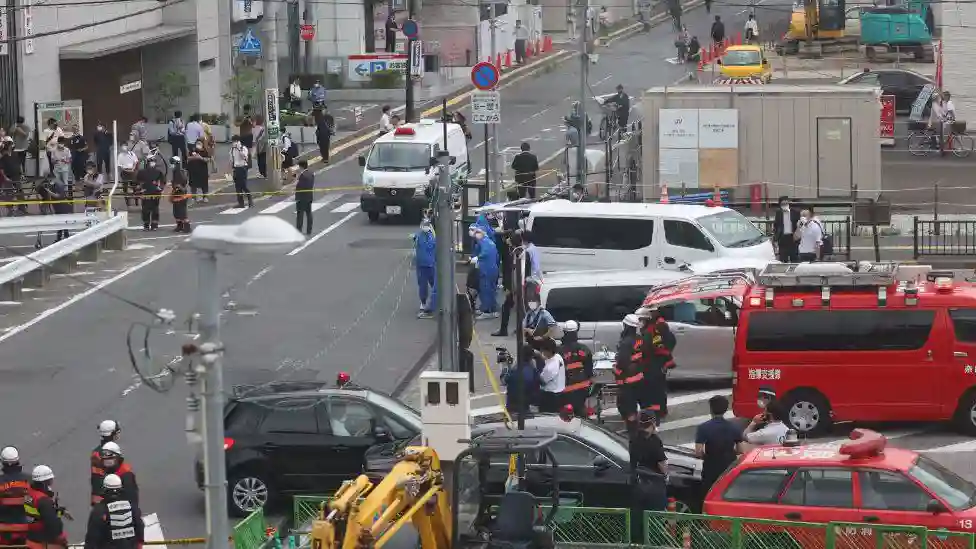Former Japanese Prime Minister Shinzo Abe has been shot during a campaign rally in the city of Nara.
Abe was shot twice while he was giving a speech, causing him to fall to the ground.
His attacker, who has been identified as Tetsuya Yamagami, believed to be in his 40s and a resident of Nara, has been arrested.
Former Tokyo governor Yoichi Masuzoe said in a tweet that the 67-year-old Abe was in a state of cardiopulmonary arrest.
Cardiopulmonary arrest is the term that is often used before a death is officially confirmed in Japan.
The Fire and Disaster Management Agency confirmed that Abe had a bullet wound on the right of his neck, and also suffered subcutaneous bleeding under the left part of his chest.
It could not be confirmed if both shots hit him, or if a bullet hit him on the neck and travelled elsewhere. Speaking to reporters, the chief cabinet secretary Hirokazu Matsuno said:
Former prime minister Abe was shot at around 11:30 local time (02:30 GMT) in Nara. One man, believed to be the shooter, has been taken into custody. The condition of former prime minister Abe is currently unknown.
Whatever the reason, such a barbaric act can never be tolerated, and we strongly condemn it.
Eyewitnesses said they saw a man carrying what they described as a large gun and firing from behind as Abe was giving a stump speech for a candidate in Nara.
He immediately fell to the ground bleeding. Security officers detained the attacker who made no attempt to run.
Local news broadcaster NHK said that police have seized the attacker’s gun and identified him.
The suspect, Tetsuya Yamagami, is believed to be a former member of Japan’s Maritime Self-Defense Force.
The shooter is believed to have built the gun himself as photographs taken as the suspect was being apprehended show what looks like an improvised, or home-made, double-barrelled shotgun.
BBC News reported that gun violence is very rare in Japan, and guns are extremely difficult to own.
Abe was Japan’s longest-serving prime minister and held office in 2006 for a year and then again from 2012 to 2020.
He resigned citing health reasons. He later revealed that he had suffered a relapse of ulcerative colitis, an intestinal disease.

